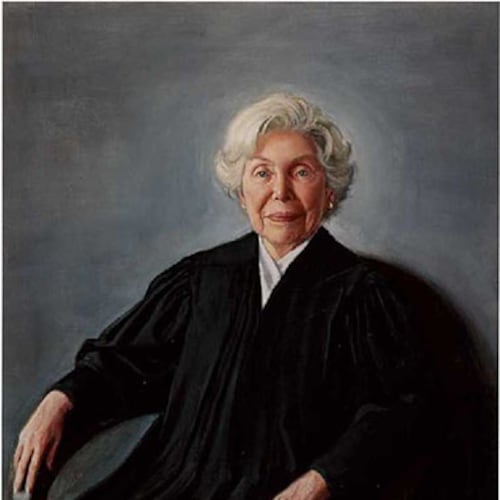The Georgia Supreme Court should soon see a "historic shift" in its responsibilities by transferring jurisdiction of some of the cases it hears now to the state Court of Appeals, Chief Justice Hugh Thompson told lawmakers Wednesday.
"This realignment will bring the Supreme Court of Georgia in line with other state Supreme Courts, which handle only the most critical cases that potentially change the law," Thompson said.
Credit: Bill Rankin
Credit: Bill Rankin
Thompson appeared before a joint session of the General Assembly to give his court's annual "State of the Judiciary" address.
Under the Georgia Constitution, the Supreme Court now hears divorce and alimony cases, cases involving wills, cases involving titles to land and disputes over boundary lines.
Thompson noted that a commission formed by Gov. Nathan Deal to study jurisdictional issues involving the state's top two appellate courts has recommended those cases now be heard by the lower appeals court.
The appeals court, which now has 15 judges, typically hears cases with three-judge panels. This means the appeals court "will have the capacity to consider five times as many cases as the Supreme Court," Thompson said.
"In answer to questions such as who owns a strip of land, what does a will mean, and who should prevail in a divorce settlement or an alimony dispute, most judicial systems believe that three judges are enough to provide the parties with a full and fair consideration of their appeal," the chief justice said. "It no longer makes sense to have seven – or nine – justices collectively review these types of cases. There is no doubt these cases will be in good hands with the Court of Appeals."
The purpose of the shift is not to lessen the burden on the Supreme Court, the Thompson said. "Rather, the intent is to free up the state’s highest court to devote more time and energy to the most complex and the most difficult cases that have the greatest implications for the law and society at large."
The state Supreme Court will retain jurisdiction of constitutional challenges to state laws, questions from the federal courts seeking rulings on Georgia law, election contests, murder and death penalty cases and cases in which the Court of Appeals judges are equally divided, Thompson said.
About the Author
The Latest
Featured



